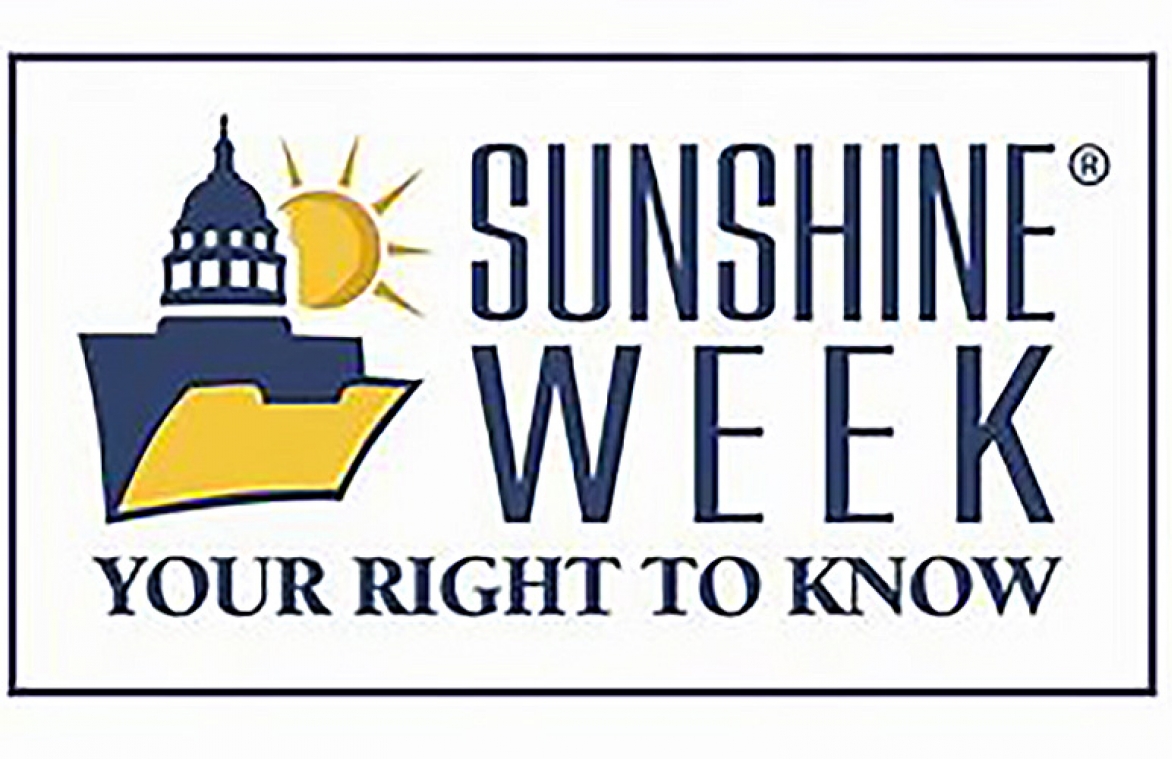In seventh grade, I became friends with Brad, a young man from the other side of the world.
Not geographically. He grew up in suburban Elmhurst, Ill., just as I did. But Brad came from a family of Democrats; my parents were Eisenhower Republicans. He was Jewish; I was a Methodist. Most divisive of all was his devotion to the Cubs; I loved the White Sox.
Still, Brad and I were always up for a debate. We agreed on nothing, but we laid out our opinions with all the facts and insights 13-year-olds could muster. Neither of us was converted – literally – but we both came away a little smarter.
When did you last sit across a table with someone of another party or background and earnestly air your views, supporting your arguments with facts, while they did the same? It doesn’t happen enough.
This is Sunshine Week, an annual reminder of the importance of keeping public records and meetings open to the public. We don’t have enough sunshine in our government. We also don’t have enough sunshine in our lives.
Head out to a dinner party and someone cautions, “Whatever you do, don’t talk politics.” Friendships can end while appetizers are passed.
Manipulation, misinformation undermine our access to information
It may be that America in 2024 is over-opinionated and under-informed:
Foreign nations – our country’s adversaries – inundate our social media with propaganda and conspiracy theories designed to divide. Too many unwitting Americans are only too happy to pass along “killer memes” so they can “own” someone from the other party.
- “Fake news” began as an insult directed at the nation’s press, but misleading and manipulative “articles” from content farms now generate massive profits and passions. Apparently clickbait works best when we’re outraged, so we end up awash in online resentment.
- Some of television’s most successful channels have been built on bias, unapologetically delivering a steady dose of “We’re good; they’re evil.”
Celebrate Sunshine Week by supporting America’s news media
Yet none of this would be so damaging to our country if not for one overriding concern. The business model for true news outlets is collapsing. Weeks ago, The New York Times offered a stark picture.
“Every day brings bad news. Sometimes it is about recently formed digital enterprises, sometimes venerable publications whose history stretches back more than a century,” David Streitfeld reported. “The continued existence of Vice Media, once valued at $5.7 billion, and Sports Illustrated, in another era the most influential sports publication, is uncertain. The Los Angeles Times and The Washington Post eliminated hundreds of journalists between them. One out of four newspapers that existed in 2005 no longer does.”
Sure, there are people dissatisfied with what they call “mainstream media.” And yes, some news media, particularly newspapers, have been devastated by cutbacks and layoffs. But there was a time not that long ago when Americans generally agreed on the facts and differed about the importance of those facts. News media were critical in framing that shared understanding. We don’t have that anymore.
Add all of that up and the scope of our challenge becomes clear. We’re overflowing with anger and often short on insight.
That brings a particular urgency to Sunshine Week, an annual reminder that government officials are the public’s employees. Accessibility and transparency should be priorities for those paid with our tax dollars.
If newspaper revenue falls short, meaning there’s no reporter at the city council meeting, how will you know about the tax increase proposal? If unscrupulous lawmakers want to cut private deals, who will be there to call them out? No disrespect to current officholders, but history is clear. When no one’s watching, bad things happen.
When reporters aren’t there, citizens need to be. The doors must to be open. The records must be available.
The Washington Post’s slogan is “Democracy dies in darkness.” Yes, that’s pompous, but it’s also true.
How can we best prevent abuse by those in power?
Demand that the public’s business be done in public. Support local news media so they can be the watchdogs we need. Don’t settle for pandering and easy answers from those on the public payroll. And above all else, keep the light on.
Ken Paulson is the director of the Free Speech Center, a professor at Middle Tennessee State University and a former editor of USA TODAY.
The Free Speech Center newsletter offers a digest of First Amendment- and news media-related news every other week. Subscribe for free here: https://bit.ly/3kG9uiJ

